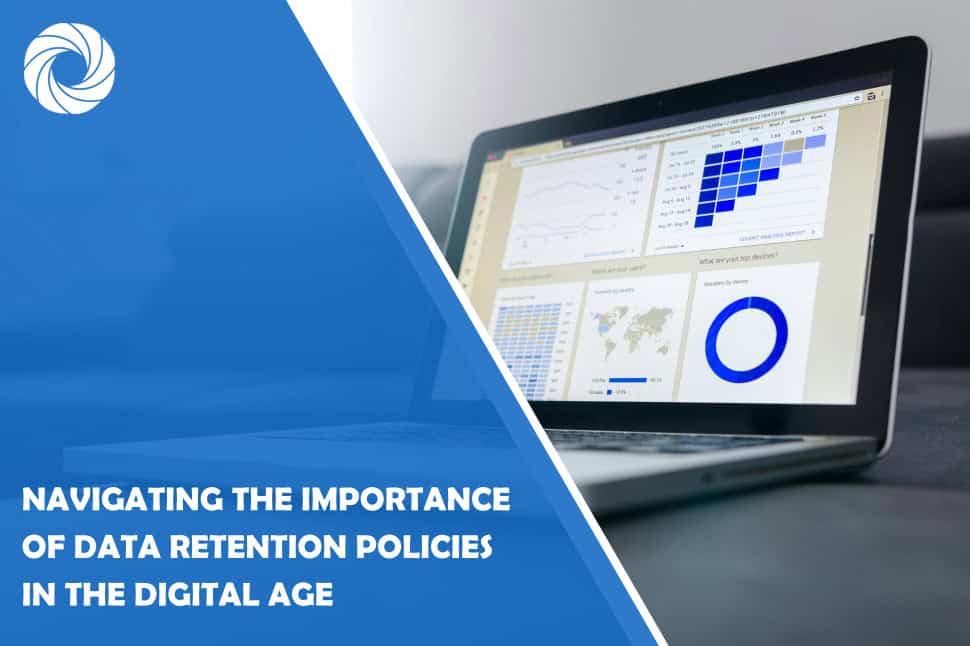Data has become a cornerstone of modern business operations. According to projections from IDC, global data creation is expected to reach 175 zettabytes by 2025, reflecting an exponential growth trajectory. This surge underscores the critical need for robust data retention policies. These policies not only facilitate regulatory compliance and operational efficiency but also empower organizations to harness valuable insights from their data reservoirs. This article delves into the intricacies of data retention policies, their pivotal role in contemporary business strategies, and practical implementation examples.
Understanding Data Retention Policies
A data retention policy delineates how long an organization intends to retain various data types, from customer records to internal communications. It serves as a roadmap for managing data throughout its lifecycle, encompassing creation, storage, and eventual deletion. The primary goals include ensuring compliance with legal regulations, protecting sensitive information, and optimizing storage resources.
Legal Compliance and Risk Mitigation
One of the foremost reasons for implementing a data retention policy is to comply with legal requirements. Different jurisdictions have distinct regulations governing data storage and privacy. For instance, the GDPR (General Data Protection Regulation) in the European Union mandates that personal data should not be kept longer than necessary for the purpose for which it was collected. Failure to adhere to such regulations can lead to severe penalties and reputational damage.
Moreover, a well-defined data retention policy reduces the risk of data breaches. By categorizing data based on sensitivity and setting clear guidelines for its retention and disposal, organizations minimize exposure to cyber threats and unauthorized access.
Enhancing Operational Efficiency
Beyond compliance, an effective data retention policy enhances operational efficiency. By systematically organizing and storing data, businesses can streamline information access, facilitating quicker decision-making processes. For example, in marketing analytics, maintaining historical data allows for longitudinal surveys of consumer behavior trends, enabling more accurate forecasting and targeted marketing strategies. Additionally, using tools like Monte Carlo simulation software can further enhance forecasting accuracy by accounting for variability and uncertainty in data, providing businesses with more robust predictive models.
Optimizing Resource Allocation
Data storage comes at a cost, both in terms of physical infrastructure and cloud-based solutions. A structured data retention policy helps optimize resource allocation by preventing unnecessary accumulation of obsolete data. This practice reduces storage expenses and improves system performance by decluttering databases and repositories.
The Role of Data Retention in Analytics and Reporting
In digital marketing, data retention policies play a pivotal role in analytics and reporting. Marketing campaigns rely heavily on data from various channels, including social media, email campaigns, and pay-per-click (PPC) advertising. Analyzing engagement rate and ROI (Return on Investment) metrics requires access to historical data to identify patterns and measure campaign effectiveness over time.
Balancing Privacy and Business Needs
While data retention policies are instrumental in leveraging data for business insights, they must also uphold customer privacy and confidentiality. Implementing anonymization techniques and encryption protocols ensures that sensitive information remains protected throughout its lifecycle. Organizations build trust with their stakeholders by incorporating privacy-by-design principles into data management practices and mitigating privacy concerns.
Case Studies and Practical Examples
Consider a digital marketing agency specializing in PPC advertising for clients across diverse industries. Their data retention policy stipulates retaining campaign performance data for at least two years after the campaign concludes. This timeframe allows them to conduct comprehensive PPC reporting examples, comparing performance metrics such as click-through and conversion rates across different advertising platforms.
Similarly, an e-commerce company utilizes surveys to gather customer feedback on product satisfaction. Their data retention policy specifies retaining survey responses for a minimum of five years to analyze long-term customer preferences and sentiment trends. This approach informs product development strategies and supports customer relationship management initiatives.
The Evolution of Data Retention Practices
As technology continues to evolve, data retention practices must also be updated. Artificial intelligence and machine learning advances offer new opportunities for predictive analytics and personalized customer experiences. Consequently, data retention policies must be agile enough to accommodate emerging technologies while maintaining compliance with evolving regulatory frameworks.
Conclusion
In conclusion, a well-crafted data retention policy is indispensable for navigating the complexities of modern data management. By balancing legal compliance, operational efficiency, and strategic insights, organizations can harness the power of data to drive innovation and maintain competitive advantage. Whether in digital marketing, customer analytics, or regulatory compliance, implementing a robust data retention policy lays the foundation for sustainable growth and responsible data stewardship in the digital age.
